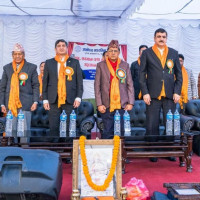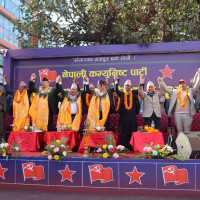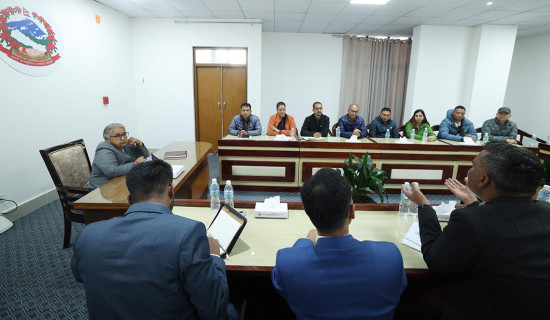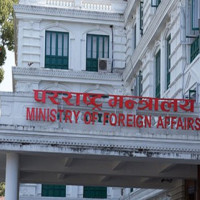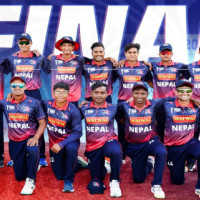- Monday, 1 December 2025
Change In Mindset Long Overdue
Quite a few nations have begun to assert that the world exists beyond their neighbourhood or region. Raw power is bound to meet with a backlash. Threats work but the consequence will be avenged in the form of action, non-action or concerted decisions. The emerging new world promises to be different. Only time will tell of its worth for better international climes.
The United States and its NATO allies one the one hand, and Russia and China on the other have been engaged in lashing out at each other these past several years over each other’s vital security and economic interests. There is no dispute that the United States is militarily the world’s mightiest and economically the largest. China comes next while Russia’s military strength is perhaps second to the US. In fact, China’s economy is better placed when it comes to vital supply chain and shock-absorbing capacity.
In any case, a combined Sino-Russian tie-up poses a matching counterweight to the US and its European allies. The Asian arch from the far east (North Korea) through Central Asia and West Asia, and a significant slice and size of South Asia together with the 54-state continent of Africa should find it a comfort zone envied by rivals. Weak-kneed leaders collapse at the prospect of standing up to a powerful force and thus contributes to the crumbling of a policy of national pride not being compromised. Is national pride and independence to be recognised as big power monopoly, and that of the smaller nations relegated to the prospect of being trampled upon subtly or otherwise, as and when required?
Ideals and deals
The situation can deteriorate to generating seething anger, brewing trouble for future. Payback time might take time; when it does, the tormentors will face the consequences. Pledges invoking lofty objectives are not without strategic calculation, when accompanied by: What’s there for us?
For instance, China stands as one of the best places for foreign investment. It has not gone to war for more than six decades, except for a brief one with neighbour Vietnam and border clash with India. Russia’s records, too, show its involvement in wars abroad to be significantly far less than that of Western powers in the post-World War II years.
Independence movements in Africa narrate tales of genocide most horrific, unravelling how cruel human beings can be. With finger on the trigger or nuclear button, political leaders indulge in rhetoric for exiting mass psychology. The belligerents know the actual truth and how serious the threats really are.
At an international forum in 2025, India’s External Affairs Minister S Jaishankar said: “Europe has to grow out of the mindset that Europe’s problems are the world’s problems.” How true he is. One would emphasise this applies to all—neighbours, regional powers and those beyond.
Sponsors of pawns fan identity ire and engineer instability in other countries. In the old order, the West spun the yarn: No serious competition in any sphere; no rivalry; no threat to legacy dominance. Monopoly proved to be the name of the game, stated or otherwise. The emerging new order envisages a multipolar world, with expanded canvas for wider participation and more deliberations on issues involving various levels—national, regional, continental and global.
Trump has issued threats of intervention in several countries, brandishing American military prowess and economic muscle. Venezuela is the latest such target. Others could be tempted to borrow a leaf from the US president when dealing with smaller or weaker nations. Regional powers, big neighbours and autocrats could issue similar threats to smaller nations without a protector or with a situation that hurts their national pride. They bare their teeth when confronted by the slightest need to adjust their interests.
Tectonic realignment in power dynamics is slowly but clearly emerging much to the welcome of the larger sections of world community even if to the consternation of legacy powers and hegemons. Many countries are courting—some are chasing—China, the No. 2 superpower that is expected to overtake the United States as the largest economy well within the 2030s. The emerging new world order should ensure that it does denote one group of hegemons replaced by another lot of hegemons. Minimum ideals that cannot be formally denied at public forums should be applied to diplomacy and other engagements.
Gauging reality
The Cuban missile crisis of 1962 between the two superpowers at the height of the Cold War should serve as an incident that still holds good if consistency in declared principles were to be accepted as the hallmark of “modern and civilised” diplomacy. Live and let live, or prosper and let others prosper. This is a rhetoric back in circulation but not without the experience of having it reduced to empty talk for too long. Due recognition of and respect to the sovereignty of independent states constitutes a new highlight. Is this possible? Yes, as much as the principles of poverty alleviation and justice are upheld in letter and spirit.
Regional powers should not be seen as subservient to bigger powers. Mindsets have to change in the former colonies and other developing nations, many of them embroiled in local or regional conflicts, frequently fuelled by the “strategic interests” of powers in the neighbourhood or beyond.
Peace and justice begin at home, the neighbourhood and the rest of the world. The World wars and numerous other armed conflicts since the 20th century amply underscore the reasoning too often for elaboration. Non-commitment to this logic means merely beating about the bush and risking too much on the potential results when a crisis turns up.
To reiterate, nations and governments will have to change their mindsets to prevent grave setbacks. The question is: How soon will the traditional outlook see a sea change? Issues should not be ignored or dealt with in a cavalier manner. Pushing things too far can lead to situations at breaking point. Ignoring the realm of logic and justice in relations with other nations sows of seeds of discord in perpetuity. It is bound to invite backlash.
(Professor Kharel specialises in political communication.)




